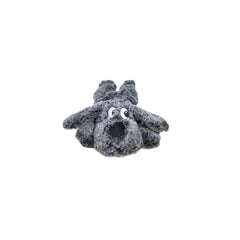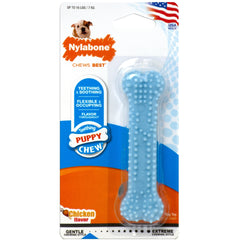
If you're considering welcoming a Spoodle puppy into your life, you've come to the right place! In this comprehensive guide, we've got everything you need to know about these adorable and lovable furry companions.
Also known as a Cockapoo in Australia, the Spoodle is a crossbreed between a Poodle and a Cocker Spaniel, resulting in a charming and intelligent breed that brings together the best traits of both parent breeds.
In this article, we'll delve into the history and origin of Spoodle puppies, their temperament, exercise and grooming needs, and tips on how to train them effectively. We'll also explore their health concerns, lifespan, and the difference between various Spoodle types like F1, F1B, and F2.
Whether you're a seasoned dog owner or a first-time puppy parent, this ultimate guide has got you covered, equipping you with all the knowledge you need to provide the best care and love for your Spoodle puppy. So, let's look at the Spoodle breed in detail so that you can make the right decision about owning a spoodle as a pet.
What is a Spoodle?
 The Spoodle, also commonly referred to as a Cockapoo, is a hybrid breed that has gained popularity over the years due to its friendly and affectionate nature. As a mix between a Poodle and a Cocker Spaniel, Spoodles inherit the intelligence and hypoallergenic coat of the Poodle, as well as the friendly and sociable temperament of the Cocker Spaniel. This makes them a great choice for individuals and families looking for a companion that is both intelligent and easy to train.
The Spoodle, also commonly referred to as a Cockapoo, is a hybrid breed that has gained popularity over the years due to its friendly and affectionate nature. As a mix between a Poodle and a Cocker Spaniel, Spoodles inherit the intelligence and hypoallergenic coat of the Poodle, as well as the friendly and sociable temperament of the Cocker Spaniel. This makes them a great choice for individuals and families looking for a companion that is both intelligent and easy to train.
Spoodles come in a variety of sizes, ranging from toy to standard, depending on the size of their Poodle parent. Toy Spoodles typically weigh between 3 and 6kg , while standard Spoodles can weigh anywhere from 9 to 14kg. Their coats can also vary in texture and colour, with options including curly, wavy, or straight fur in colours such as black, white, brown, or a combination of these.
Characteristics and Traits of Spoodle Puppies
Spoodle puppies inherit a unique combination of traits from their Poodle and Cocker Spaniel parents, making them a delightful mix of intelligence, playfulness, and affection. They are known for their friendly and outgoing nature, which makes them great companions for individuals and families alike. Spoodles thrive on human interaction and are known to be loyal and loving towards their owners.
Cocker Spaniel parents, making them a delightful mix of intelligence, playfulness, and affection. They are known for their friendly and outgoing nature, which makes them great companions for individuals and families alike. Spoodles thrive on human interaction and are known to be loyal and loving towards their owners.
One of the standout characteristics of Spoodles is their intelligence. Both Poodles and Cocker Spaniels are highly intelligent breeds, and Spoodles inherit this trait, making them quick learners. This intelligence, coupled with their desire to please their owners, makes them highly trainable. Spoodles excel in obedience training and can learn a wide range of commands and tricks with consistency and positive reinforcement.
 In terms of energy levels, Spoodles are generally active dogs that require regular exercise to keep them happy and healthy. Daily walks, playtime, and mental stimulation are essential for their overall well-being. However, the amount of exercise needed can vary depending on the size and age of the Spoodle. Toy Spoodles may only require shorter walks and play sessions, while larger Spoodles will benefit from more active exercise, such as running in moderation.
In terms of energy levels, Spoodles are generally active dogs that require regular exercise to keep them happy and healthy. Daily walks, playtime, and mental stimulation are essential for their overall well-being. However, the amount of exercise needed can vary depending on the size and age of the Spoodle. Toy Spoodles may only require shorter walks and play sessions, while larger Spoodles will benefit from more active exercise, such as running in moderation.
Pros and Cons of Owning a Spoodle Puppy
Owning a Spoodle puppy comes with many advantages, but it's important to consider the potential challenges as well. Let's take a look at some of the pros and cons to help you make an informed decision.
Pros:
- Friendly and sociable: Spoodles are known for their friendly and sociable nature, making them great companions for individuals and families alike. They get along well with children and other pets if properly socialised from an early age.
- Intelligence and trainability: Spoodles are highly intelligent and eager to please, making them relatively easy to train. They excel in obedience training and can learn a wide range of commands and tricks.
- Hypoallergenic coat: Spoodles inherit the hypoallergenic coat of their Poodle parent, which means they produce fewer allergens and are suitable for individuals with allergies or asthma.
- Versatility: Spoodles are adaptable and can thrive in various living situations. Whether you live in an apartment or a house with a backyard, a Spoodle can easily adjust to their environment.
Cons:
- Grooming needs: Spoodles require regular grooming to maintain their coat's health and prevent matting. This includes brushing their fur, regular baths, and occasional trips to a professional groomer.
- Exercise requirements: Spoodles have moderate to high energy levels and require regular exercise to keep them physically and mentally stimulated. Not providing enough exercise can lead to behavioural issues and restlessness.
- Health concerns: Like all breeds, Spoodles are prone to certain health issues, including ear infections, hip dysplasia, and allergies. Regular veterinary check-ups and a healthy diet can help mitigate these risks.
- Separation anxiety: Spoodles bond strongly with their owners and can develop separation anxiety if left alone for extended periods. They thrive in homes where someone is present most of the time.
Spoodle Puppy Care and Training Tips
Taking care of a Spoodle puppy involves providing them with the love, attention, and care they need to thrive. Here are some essential care and training tips to ensure your Spoodle puppy grows into a happy and well-adjusted adult:
1. Socialisation: Early socialisation is crucial for Spoodle puppies to develop into well-rounded and confident dogs. Introduce your puppy to various people, animals, and environments to help them become comfortable and friendly in different situations.
2. Obedience training: Start training your Spoodle puppy as early as possible to establish good habits and a strong bond. Use positive reinforcement techniques, such as treats and praise, to reward desired behaviours and discourage unwanted ones.
3. Exercise and mental stimulation: Provide your Spoodle puppy with regular exercise and mental stimulation to keep them physically and mentally engaged. This can include daily walks, interactive toys, and puzzle games that challenge their intelligence.
4. Grooming: Establish a regular grooming routine for your Spoodle puppy, including brushing their coat to prevent matting, regular baths, and nail trimming. Introduce grooming gradually from a young age to make it a positive and enjoyable experience for your puppy.
5. Health care: Schedule regular veterinary check-ups for your Spoodle puppy to ensure they are up to date on vaccinations, prevent parasites, and monitor their overall health. Discuss any concerns or questions with your veterinarian to provide the best care for your puppy.
There is plenty of information available about settling new pups into their new homes and establishing a night time routine. Read our previous blog on Creating the Perfect Environment for Your Puppy’s First Night in Their Dog Bed for tips and tricks!
If you're interested in adding a Spoodle puppy to your family, there are a few different places to look. Spoodles are one of the breeds that we sell, contact us for availability and future litters. Learn more here about the process of buying a puppy through us here.
Remember, consistency, patience, and positive reinforcement are key when training and caring for your Spoodle puppy. With proper care and training, your Spoodle will grow to become a muched loved family member!
© weknowpets 2024
